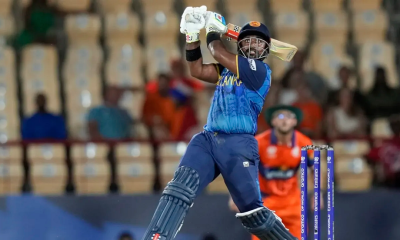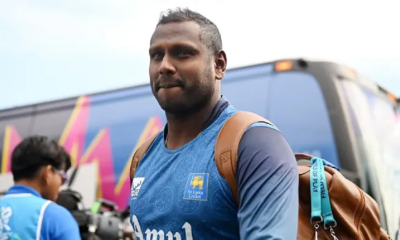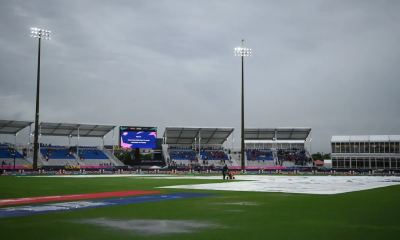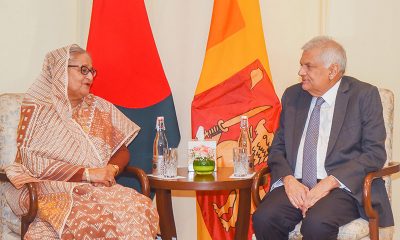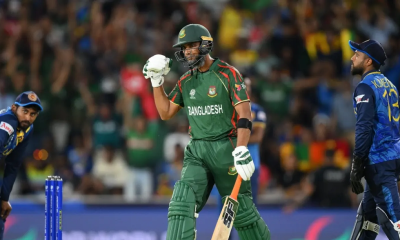News
Violence: HRW urges world to pressure Sri Lanka to respect fundamental freedoms
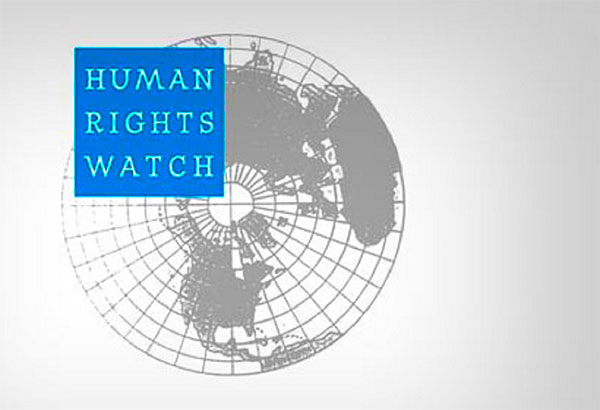
The Human Rights Watch (HRW) has urged foreign governments and international institutions, including the International Monetary Fund (IMF) and World Bank, which are offering assistance, to address Sri Lanka’s economic crisis, to insist that the government respect fundamental freedoms.
The following is the text of a New York date-lined statement issued by HRW on May 10: Clashes broke out in Sri Lanka on May 9, 2022 after government supporters attacked peaceful anti-government protest sites in Colombo, the capital, and elsewhere. The government should uphold the right to peaceful protest, ensure that the security force response to public disorder is proportionate and rejects excessive force, and promptly investigate and appropriately prosecute acts of violence.
Several hundred people, identifying themselves as supporters of Prime Minister Mahinda Rajapaksa, arrived by bus, in Colombo, on May 9, and advanced to the Galle Face Green, where protesters, calling for the resignation of the government, have been peacefully camped for several weeks. Witness accounts and video footage show government supporters attacking the protesters with clubs and other weapons and setting fire to tents. Hours later, Mahinda Rajapaksa resigned as Prime Minister.
“The attack on peaceful protesters by Sri Lankan government supporters has sparked a dangerous escalation, increasing the risk of further deadly violence and other abuses,” said Meenakshi Ganguly, South Asia Director at Human Rights Watch. “It is vitally important for the security forces to fully respect the right to peaceful assembly, and for those responsible for violence to be held to account.”
Kasumi Ranasinghe Arachchige, a protester who was at Galle Face Green, when the attack occurred, said that police forces at the scene, which included a water cannon truck, “retreated” when government supporters attacked protesters with knives and sticks. “They [government supporters] started destroying everything,” she said, describing damage to tents and other facilities, including temporary showers and a small library. “It seemed as if they knew what and who to look for.”
Over 150 people have been reported injured and at least five dead in different incidents, including the attack on Galle Face Green, and the government has imposed a nationwide curfew. The Human Rights Commission of Sri Lanka and the Bar Association, as well as foreign diplomats, condemned the attack on protesters and called for an impartial investigation.
In recent months, Sri Lanka’s economic crisis has provoked widespread protests calling for political reform and for the resignation of the President, Gotabaya Rajapaksa, and his brother Mahinda, the Prime Minister. On April 1, President Rajapaksa imposed a State of Emergency, lifting it five days later. The government reimposed a State of Emergency on May 6 after police fired teargas and arrested students protesting near Parliament, which was adjourned until May 17. Although the protests have been overwhelmingly peaceful, the police fatally shot a protester on April 19, and on several occasions have used teargas and water cannon against protesters. The authorities have made numerous arrests and repeatedly imposed curfews.
Following the attack on the protesters’ camp at the Galle Face Green, there were numerous violent incidents in Colombo and elsewhere in the country, including clashes between government supporters and anti-government protesters, and attacks on the property of ruling party politicians. In Nittambuwa, 50 kilometers from Colombo, police said that Amarakeerthi Athukorala, a government member of Parliament, opened fire on protesters blocking his car, wounding one and killing another, then fatally shot himself.
Concerned governments and international institutions, including the International Monetary Fund (IMF) and World Bank, which are offering assistance to address the country’s economic crisis, should insist that the government respect fundamental freedoms, Human Rights Watch said.
The latest State of Emergency was imposed on May 6, but the government did not immediately publish the emergency regulations laying out the special powers assumed. Under the International Covenant on Civil and Political Rights (ICCPR), to which Sri Lanka is a party, certain rights may be derogated, or restricted, under a State of Emergency, while other rights, including the right to life and prohibition of torture, may not under any circumstances be limited. Any derogation must be limited and proportionate. Foreign governments, including the United States and Canada, as well as the European Union, have questioned President Rajapaksa’s decision to assume emergency powers.
Sri Lanka has a poor record under successive administrations of investigating and prosecuting countless grave violations of human rights. During a previous government between 2005 and 2010, Gotabaya Rajapaksa and Mahinda Rajapaksa, as well as other senior figures in the current administration, were implicated in the killing and enforced disappearance of journalists and political activists and in numerous war crimes during the civil war that ended in May 2009.
“In recent weeks, thousands of Sri Lankans have peacefully protested against corruption and called for accountable governance and respect for human rights,” Ganguly said. “Pro-government supporters have responded to those calls with violence, which those in authority need to stop.”
News
Rs 1. 3 bn yahapalana building deal under investigation

Several ex-Cabinet ministers questioned; Ranil, Sajith, too likely to be summoned
The Commission to Investigate Allegations of Bribery or Corruption (CIABOC) has initiated an inquiry into the shifting of the Agriculture Ministry situated at Rajamalwatte, to a building belonging to the D. P. Jayasinghe Group of Companies, at Rajagiriya, during the Yahapalana government.
The building was rented for a five-year period at a cost of over Rs 1 bn by the yahapalana government within months after the then President Maithripala Sirisena declared opened the 10-storey building complex.
The CIABOC yesterday morning recorded former yahapalana minister Gayantha Karunatilleke’s statement in connection with the investigation. Later in the day, CIABOC recorded the statement of SJB General Secretary Ranjith Maddumabanadara. Earlier CIABOC summoned former ministers Thalatha Atukorale, Wajira Abeywardena and Lakshman Kiriella. At the time of the finalisation of the deal, KIriella was in the UNP.
Sources said that former PM and President Ranil Wickremesinghe, too, was likely to be questioned in this regard. Responding to The Island queries, sources pointed out even SJB leader Sajith Premadasa was expected to be questioned.
The then Speaker Karu Jayasuriya is on record as having said that the building was rented in keeping with a decision taken by the government and not Parliament.
The UNP-SLFP coalition shifted the Agriculture Ministry to accommodate 16 Sectoral Oversight Committees therein.
Although the government paid as much as Rs. 21.5 mn monthly rent to D.P.A. Jayasinghe Company, the Agriculture Ministry failed to move in for over a year. The then Agriculture Minister Duminda Dissanayake sought Cabinet approval on Dec 1, 2015 to rent the building.
According to inquiries conducted earlier by the Presidential Commission appointed to probe state sector corruption, the Agriculture Ministry sought Cabinet approval for a new building after the then Prime Minister Wickremesinghe submitted a cabinet proposal on 21 September, 2015, to use the Agriculture Ministry building for Parliament’s sectoral oversight committees.
PM Wickremesinghe’s Secretary Saman Ekanayake has told the Commission that public funds could have been saved if the several vacant floors of Suhurupaya belonging to the Defence Ministry had been made available to the Agriculture Ministry.
By Shamindra Ferdinando ✍️
News
SL Railways suffers staggering losses; more than 2/3 of rail tracks out of service

Railway sources said that the damages caused to railway tracks could be more than USD 300 mn.
According to UNDP Rapid Crisis Assessment Sri Lanka’s railroad system, over 278 km of railways were exposed to cyclone-related flooding, including 35 railroad bridges nationwide. This figure reflects flooding only, but other hazards (such as localised debris, landslides, or damage to a single bridge) can also disrupt operations, meaning that even relatively small obstructions can render long stretches of railway non-operational. Like road exposure, railway exposure limits mobility and the capacity of affected populations to access key services and infrastructure.
At the level of divisional secretariats, Colombo and Thimbirigasyaya in Colombo District, Ja Ela in Gampaha District, as well as Mannar Town and Nanaddan in Mannar District all registered over 10 km of exposed railways each.
Commissioner-General of Essential Services B.K. Prabath Chandrakeerthi is on record as having said that only 478 kilometers of Sri Lanka’s 1,593-km railway network were currently usable following extensive damage caused by the recent cyclone.
News
US, SL advancing free, open, and resilient Indo-Pacific region: Embassy

Under Secretary of State for Political Affairs Allison Hooker arrived in Colombo yesterday (11) to underscore US interest in defence, trade and maritime security in line with their Indo-Pacific strategy.
The US embassy here issued the following statement: “Under Secretary Hooker will meet with Sri Lankan counterparts to discuss a wide range of bilateral issues, focused on deepening economic and commercial ties, strengthening defence cooperation, and supporting Sri Lanka’s economic and maritime sovereignty.
The United States and Sri Lanka share a strong and enduring partnership rooted in our mutual commitment to regional security, economic growth, and prosperity for our peoples. Through close cooperation on defence, trade, and maritime security, we are working together to advance a free, open, and resilient Indo-Pacific region.
As we continue to build on our strategic partnership, the United States also stands with the people of Sri Lanka as they respond to the devastating impacts of Cyclone Ditwah. We remain committed to working together to address both immediate challenges and long-term opportunities for our two nations, reflecting our ongoing commitment to the U.S.-Sri Lanka partnership.”
-

 News5 days ago
News5 days agoOver 35,000 drug offenders nabbed in 36 days
-

 Features3 days ago
Features3 days agoFinally, Mahinda Yapa sets the record straight
-

 News4 days ago
News4 days agoCyclone Ditwah leaves Sri Lanka’s biodiversity in ruins: Top scientist warns of unseen ecological disaster
-

 Business7 days ago
Business7 days agoLOLC Finance Factoring powers business growth
-

 News7 days ago
News7 days agoCPC delegation meets JVP for talks on disaster response
-

 News7 days ago
News7 days agoA 6th Year Accolade: The Eternal Opulence of My Fair Lady
-

 News5 days ago
News5 days agoRising water level in Malwathu Oya triggers alert in Thanthirimale
-
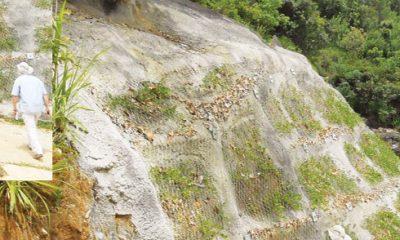
 Features6 days ago
Features6 days agoThe Catastrophic Impact of Tropical Cyclone Ditwah on Sri Lanka:


